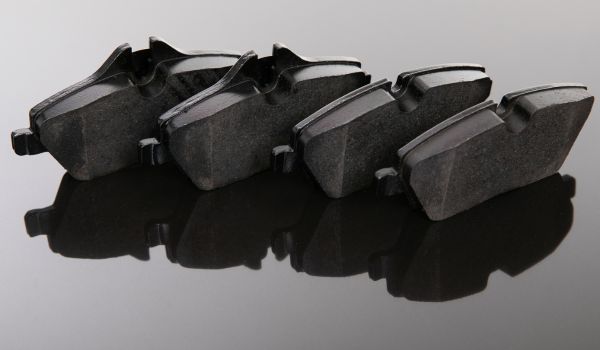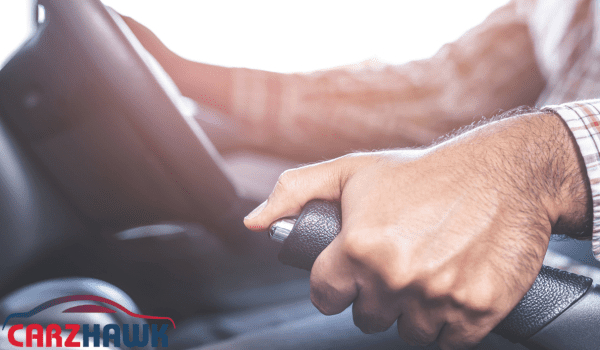Have you ever hit the brakes and felt that strange sponginess? Do not worry. Most brakes are Spongy Brakes, but they’re easy to fix if you notice them early.
We’ll talk about the most likely reasons for the problem and give you easy testing steps you can use to fix Spongy Brakes yourself. This could save you time, money, and even your life.
What Are Spongy Brakes?
If your brake pedal feels soft or spongy when you press down on it, you have Spongy Brakes. This is also called a soft or mushy brake pedal. When you press down on your brake pedal, you usually feel something hard and responsive. This feeling is different.
Top 8 Causes of Spongy Brakes
Having brakes that are too soft is not only annoying, it’s also risky. If you feel something odd when you press the brakes, here are five possible reasons why this might be happening.
1: The Brakes Have Air In Them
Most of the time, air in the brakes can cause soft brakes. But it’s just as important to figure out how the air got in as it is to get rid of it. If you just had work done on the brakes, that could be the cause.
Otherwise, there is a leak somewhere, and the noise you hear is likely a leak that you need to fix. First, let the brakes breathe and check to see if the problem still exists. Check out what comes next if the problem still exists after bleeding the brakes.
2: Broken Brake Lines
Many parts can break, but the brake lines are the most common. Coastal places and states with a lot of rock salt on the roads are more likely to have this happen. Both of these things make the brake lines rust, and they don’t protect them from either of them.
They are more likely to rust if you leave them on for a long time. This can cause leaks that let brake fluid escape and air into the system.
3: An Old Brake Fluid
Brake oil doesn’t last forever, but it can stay for a while. Some automakers say that service should be done every 20,000 to 30,000 miles, but the truth is a bit more complex.
That’s because the fluid can last over 100,000 miles if there are no leaks in the brake system. But when air is added to the system, it starts to oxidize the fluid and add water to it.
This isn’t good for your car’s brakes. Your brakes will feel spongier as more water is added. This is a clear sign that you need to flush the system and change the fluid.
Even though it might not look like there is any air in your brake lines, the air likely made the fluid too dirty to work.
4: Master Cylinder Is Broken
It’s possible for your brake lines to rust and leak, but your master cylinder has seals that keep everything running right. Based on where the leak is, if the master cylinder seal breaks, one of two things can happen.
First, brake fluid can leak out of the cylinder, making the brakes soft. Second, air will get into the system if the leak is above where the brake fluid is, like at the cap.
This air can make things worse, and the water it draws will break down the brake fluid, making the brakes spongy. To keep the problem from happening again, you’ll need to fix the leak and flush the brake fluid.
5: Brake Calipers That Are Broken
A leak is also likely to happen around the brake pads. Seals on the brake pistons keep the fluid where it should be, but if those seals start to wear out, there could be a leak.
This only happens sometimes, but if it does, it’s a big problem. Your brakes will not only feel soft but there won’t be enough brake fluid around the wheels and pads.
If your brake caliper is leaking, you need to fix it right away.
6: The Brake Booster is Leaking
The brake booster is another important part of your car’s stopping system. When you press down on the stop pedal, the brake booster makes the force you feel stronger.
This is a useful feature, but if any of the seals in a hydraulic-type brake booster start to fail, you might end up with what feels like spongy brakes but is really less brake power when you step on the pedal.
7: Rear Brake Shoe Adjustment Issue
It’s possible that the rear brake shoes are out of adjustment if pressing down on the stop pedal makes it feel better. The problem might be that the back shoes aren’t being changed as they get worn. Shoes should be looked at to see how worn they are and fixed if necessary. As a safety step, make sure to use the parking brake every so often. As soon as you apply the parking brake, the brake shoes are automatically adjusts.
8: ABS Hydraulic Assembly do Not Work
A hydraulic system, which is also an ABS modulator, is in cars with ABS. This device has several solenoids and valves inside it. A valve may not work properly if it has an internal problem, rust, or debris in the brake fluid. This can make the pedal feel low or spongy.
How to Tell If Your Brake Pedal Is Soft
When you press down on the brakes, you should feel firm pressure all the way through. When you press the brakes, the pedal should feel strong but not solid. If it feels like the pressure is changing, the pedal is soft.
It’s the same thing to say when your brakes are Spongy Brakes.
You can do one more test to figure out where the trouble is coming from. While the car is off, pump the brakes a few times. This is one of the best tests you can do. Press down on the brakes when the pedal gets tough.
If the pedal falls to the floor after this, there is a leak in the system, and you know it’s not just a small amount of air that needs to be bled out.
How Much Does It Cost to Fix Squeaky Brakes?
Do you worry about fixing your brakes that don’t work right? The cost will be easy to understand if we break it down. The prices may be different for your car, where you live, and the service center you choose, but these rough figures should help you know what to expect.
Let us begin by talking about how to flush and bleed the brake fluid. Often, this is the first thing that people do when their brakes feel weak because of air in the brake lines or dirty brake fluid. This service will cost you between $80 and $200.
You might have to get a whole new disc brake caliper if you have bigger problems with it, like a stuck or broken one. Depending on your car and where you buy it, a new caliper can cost anywhere from $60 to $300. But you’ll also have to pay for the work, which can cost anywhere from $80 to $200 per job.
You may find that the damage to your brake calipers cause by too much cylinder wear. This means that your brake master cylinder may need to be changed. Based on the make and model of your car, replacing the master cylinder will usually cost between $250 and $500. This includes both the parts and the work.
Sometimes, a test may show that your brake lines are rusty, or leaky. Getting new brake lines can cost between $300 and $800, which includes the tools and the work. It’s a bit pricey, but you need to make sure your brakes are always in good shape.








